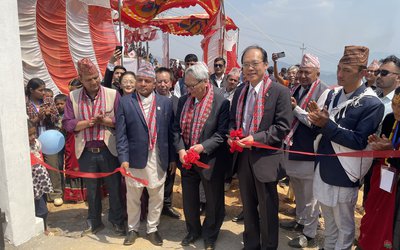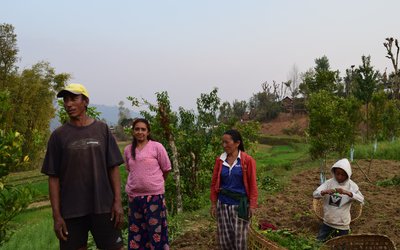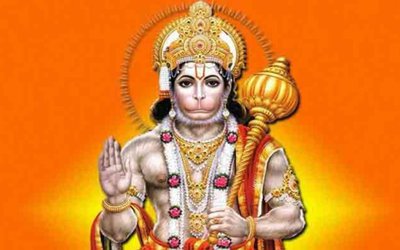I started out writing a brief, brash monograph in question-answer format to try and explain contemporary politics of Nepal. Over a few months of writing, I ended with a full-length work that has become a kind of rumination on the peace process, but delving into associtied areas from geopolitics to identity politics, economics and transitional justice. In large part, the reader will find my finger pointed at the UCPN(Maoist), which has for some years been the main driver of the polity, the other players reduced to reacting to the agenda set by the Maoist leaders. The Maoist record must be held up for scrutiny, judged against the values of ahimsa and loktantra (non-violence and democracy), even though some Kathmandu commentators, lost in the fog of demagoguery and repeated misrepresentation, believe that these terms and the values they represent are simplistic and passé. Sooner or later, the Maoist must abandon violence through a public declaration and settle down to long-term politics as a civilian party. They will even come a time, I believe, when the Maoists leaders will come forward to express remorse for having started the ‘people’s war’ in 1996. Beyond the smoke and mirrors, the discerning citizen knows that the UCPN (Maoist) agenda has been to foment chaos, destroy all institutions and due process, and be there to reap the fallout. The citizens recognize that the Maoists have been engaged in a 15-year campaign to annihilate employment prospects in this country of the marginalized, forcing the impoverished peasantry into deeper poverty and accelerated migration for survival.
There are other immediate challenges beyond converting the Maoists into a democratic party, and these include: the cross-border ‘militant criminality’ in the eastern Terai, the possibility of caste-ethnic tensions and inter-community clashes of various kinds, and the likely rise of a nasty rightist flank promoted by ex-royals willing to exploit religion. The increasingly skewed distribution of income, the conspicuous consumption of Kathmandu, the flight of educated young adults, the stalled ambitions of youth in a society where there is no employment growth, the failure to convert natural bounty into material wealth- all these are issue that will dog our society and challenges the peace, even after the Maoists democratize. The rehabilitation of those victimized by the decade-long conflict and prosecution of the perpetrators of atrocities must be priority, without which real peace will never return.
There is a gloom, but there is also cause for optimism in the resilience of the public and the ability of our leaders to snatch victory from disaster, to move from suffocation to innovation, to refuse to submit to the prognosis of a failed state. A public that can conduct a people’s movement like which transpired in April 2006 cannot be regarded as without agency. It is the spirit of the masses that will keep our society open, bring insurgents to heel and create conditions where sovereignty, good-neighbourliness and a democratic peace will deliver material prosperity denied to us for so long.
To confess, this work is not informed by social science scholarship. On the socio-political issues of Nepal, as a neophyte writer, I rely on the analyses and observations of scholars and activists who have battled for decades to build a responsive democracy in Nepal. It is on the basis of this friendly backup that I recently came out with the book Dekheko Muluk (The Country Witnessed). The present work is, in a way, an addendum to and update of that Nepali-language work. If I am seen to be critical of whole categories of people – Kathmandu scholars, civil society stalwarts, development-wallahs, donor representatives and diplomats- there are many individuals in each group who have the empathy and commitment that will help this society move towards political stability, pluralism, peace and prosperity.
It is always an exercise fraught with difficulty to prognosticate publicly at a time when society is undergoing such upheaval and transition, when the variables are so many. Whether talking about the conclusion of peace process, the future shape of federalism, the evolution of the political spectrum, or regional geo-politics, there are just too many ‘unknowables’. But one must try out opinions, even at the cost of making a mistake, as was proven with my prediction of a third placement for the Maoist party in the Constituent Assembly elections. I have something more to say about that inside. In societies with a more alert civil society looking out for the interest of the citizenry, there is better ability to chart events, but in Nepal one is left to rely mostly on the good sense of the masses and the turning of the wheel of time. There is some risk in writing this book, therefore, but it certainly does not need to be dai-chiuray , making believe one is expressing an opinion when actually straddling the fence.
It is with some trepidation that we enter the year 2068 BS. Past the monsoon, autumn and deep winter, spring is the season of discontent in Nepal, the traditional time of upheaval. Before we enter the coming monsoon, Nepal must successfully conclude the peace process so that one party is no longer able to frighten the citizenry with its private army. By then hopefully, we will be well on our way towards a new constitution whose democratic values provide the basis for inclusive growth and an end to marginalization. Blocking the radical left is also the way to stop a surge of the reactionary right, to allow effervescent, albeit untidy multiparty democracy to take root in the organic soil of Nepal. The political forces, civil society and the international community, who have to work together for the sake of our people, must be alert to the snares that lie ahead on the trail to peace and pluralism.
(Excerpts from Dixit’s preface written in the recently published book Peace Politics of Nepal An Opinion From Within)
- TANAHU HYDROPOWER PROEJCT: A Significant Achievement
- Apr 15, 2024
- AMBASSADOR HANAN GODAR: Sharing Pain With A Nepali Family
- Mar 30, 2024
- VISIT OF KfW AND EIB TO NEPAL : Mission Matters
- Mar 25, 2024
- NEPAL BRITAIN SOCIETY: Pratima Pande's Leadership
- Mar 24, 2024
- NEPAL ARMY DAY: Time To Recall Glory
- Mar 15, 2024
















